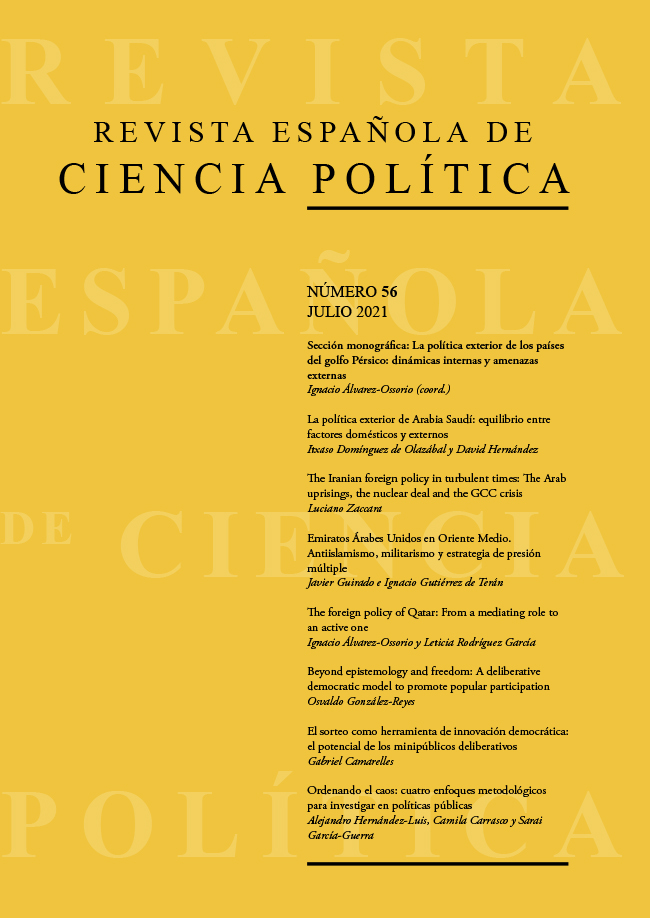The foreign policy of Qatar: From a mediating role to an active one
DOI:
https://doi.org/10.21308/recp.56.04Palabras clave:
Catar, Primavera Árabe, Al Jazeera, Irán, Arabia SaudíResumen
El objetivo de este artículo es examinar cómo afecta el proceso de toma de decisiones en la política exterior a la conducta de los Estados en el sistema internacional y cómo responden estos a las amenazas externas en función de factores internos, en especial las percepciones de amenaza y la capacidad de las instituciones para movilizar poder. A pesar de su escaso tamaño y reducida población, Catar ha alcanzado en las últimas décadas una enorme proyección regional. Nuestra hipótesis es que la Primavera Árabe obligó a Catar y al resto de monarquías de la región a reestructurar su política exterior. El rol mediador-integrador desempeñado hasta entonces por Doha dejó paso a un rol activo-independiente en el que las herramientas del hard power sustituyeron paulatinamente a las del soft power precedente. Este cambio agravó las tensiones con Arabia Saudí y Emiratos Árabes Unidos, que en 2017 decidieron imponer un bloqueo sobre Catar.
Descargas
Descargas
Publicado
Cómo citar
Número
Sección
Licencia
Derechos de autor 2021 Ignacio Álvarez-Ossorio, Leticia Rodríguez-García

Esta obra está bajo una licencia internacional Creative Commons Atribución-NoComercial-SinDerivadas 4.0.






